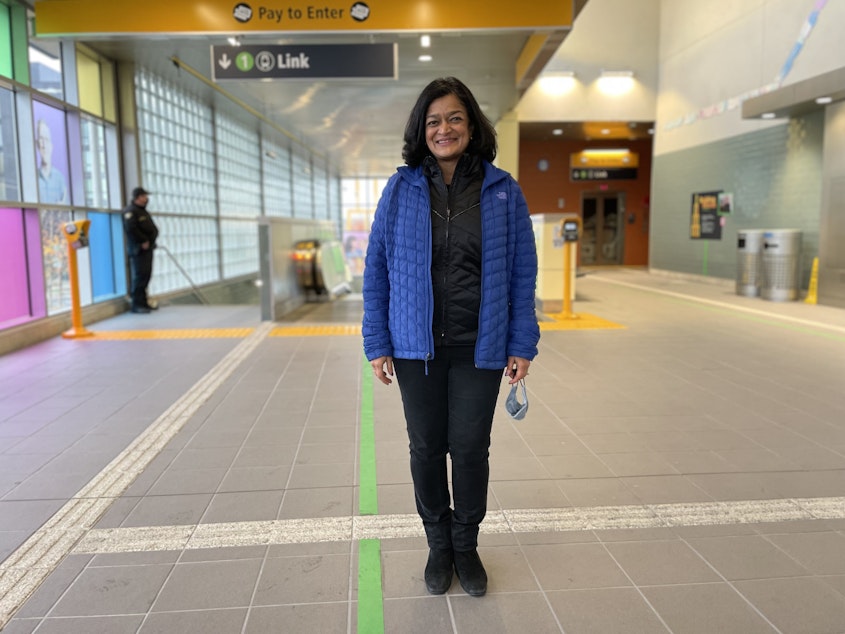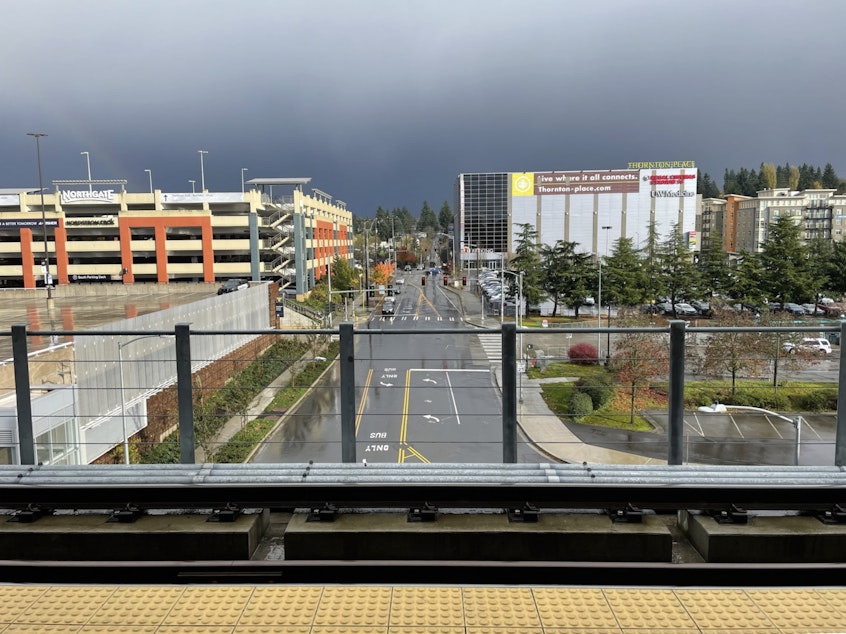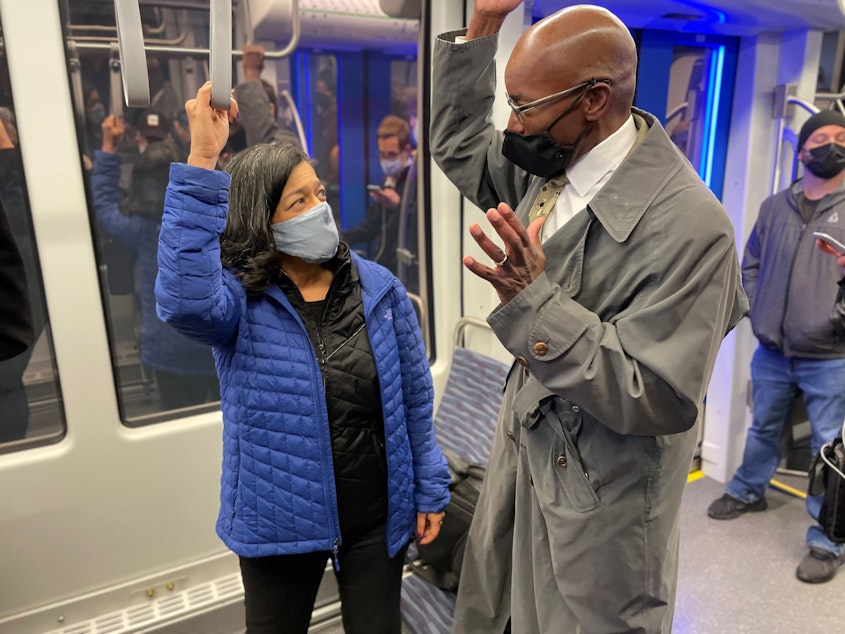How the infrastructure bill could bring big wins for Seattle-area transit

Congressperson Pramila Jayapal came to Seattle Tuesday to talk about the Infrastructure Investment and Jobs bill that just passed.
Outside Northgate Station, Representative Jayapal listed some of the things in the bill.
Bridges will be built, buses will go electric. Ferries will be electrified. Money will go to helping restore Puget Sound.
"$8.5 billion will flow into Washington state from this infrastructure bill," Jayapal said. "And we will see that in every place that you look."
RELATED: What's in the infrastructure bill for Washington
One of those places is in the planned 116 mile light rail system that will eventually serve cities from Tacoma to Everett, from Seattle to Issaquah.
Sponsored
And so, in celebration of the bill's passage, Jayapal would be riding the train from Northgate for the first time.
Sponsored
"I wish I could have been here for the opening," she told local officials who gathered to greet her.
She stood on the platform waiting for the train. Elsewhere on the platform, commuters watched the dark gray sky over Northgate.

Tevette was one of those commuters. She lives in Everett. She said she's tired of waiting for light rail.
“Compared to LA and Long Beach California where I’m from, you guys are like 10 or 15 years behind us down there,” she said. "Yeah, in terms of transit. You guys need to get it together.”
Sponsored
Tevette said she wants to see light rail all over the region.
On board the train, Representative Jayapal said the infrastructure bill can help with that.
It guarantees Sound Transit $380 million, but the agency could net much more through competitive grants.

“Hopefully this is the kind of investment that will speed up our ability to get these stations done, and also to have some certainty, right?" she said. "Because so much of our federal investment has been every cycle, two years, three years ... we don't know what it's gonna be like. This is a significant 10-year investment. And so I think that is something that our elected officials at the local and state level can now plan around.”
Sponsored
But not everyone’s comfortable with the level of spending in this bill. Caleb Heimlich is the chairman of Washington State’s Republican Party.
In a statement, he said “Democrats are causing record inflation with their reckless spending bills.”
He said the package doesn’t help families pay the rising cost of gas … or a Thanksgiving turkey.
GOP Congressperson Dan Newhouse wrote "Friday's vote represents a complete and total failure on the Democrats part to listen to the American People."
He said Congress should be able to do more for Americans while costing them less.
Sponsored
Sound Transit digs deeper into the numbers
Peter Rogoff, Sound Transit's CEO, is on the East coast for a transit conference.
He said one thing he's learning there is that transit agencies all over the country are facing the same problems that plagued Sound Transit this year: rising costs for materials, labor and land.
This summer, Sound Transit took a hard look at its finances. Short term projects, like getting to Bellevue, Lynnwood and Federal Way would be fine. But when it looked into the distant future, the agency learned that longer term projects faced an $11.5 billion shortfall.
Since then, the economy's recovered a bit, decreasing the shortfall by almost half.
Sponsored
But the agency still would need to cut. It balanced the books by delaying the agency's expansion to Everett, Tacoma, Issaquah and Ballard by a few years.
Sound Transit was forced to slow things down while voters were pleading with the agency to speed things up.
"So this came at the perfect time," Rogoff said of the infrastructure bill.
But as he looks around the room at the conference he's attending, Rogoff sees competition. New York City needs an expensive new tunnel under the Hudson River. Transit agencies in Texas, Florida and Los Angeles all want to expand their systems. At the conference, these agencies representatives are friendly.
"But we're all competing for the same pot of money," Rogoff said.
The good news, he said, is that the size of that pot of money has doubled.
"When you grow that pot of money dramatically, for the benefit of all of us, it's going to make our ability to pull down federal dollars that much easier."
For example, $2.5 billion of that money could claw back many of those painful delays the agency committed to this summer. Everett, Tacoma, Ballard and Issaquah could see light rail around the time voters originally expected when they passed ST3 back in 2016.
More money could help the agency go even faster.
Rogoff said he's eyeing $5.2 billion earmarked for electric vehicles. Sound Transit wants electric buses for its "Stride" bus service that will eventually bring commuters to new light rail stations on the east side of Lake Washington.
Rogoff was originally hired, in part, for his close connections to D.C. and his ability to bring in federal dollars. But much of the work of bringing in money from the Infrastructure Investment and Jobs Act will fall to Rogoff's successor. Rogoff plans to leave the agency in mid 2022.
Sound Transit's board is still searching for his replacement.




